Physical Address
60 Ekwema Cres, Layout 460281, Imo
Physical Address
60 Ekwema Cres, Layout 460281, Imo
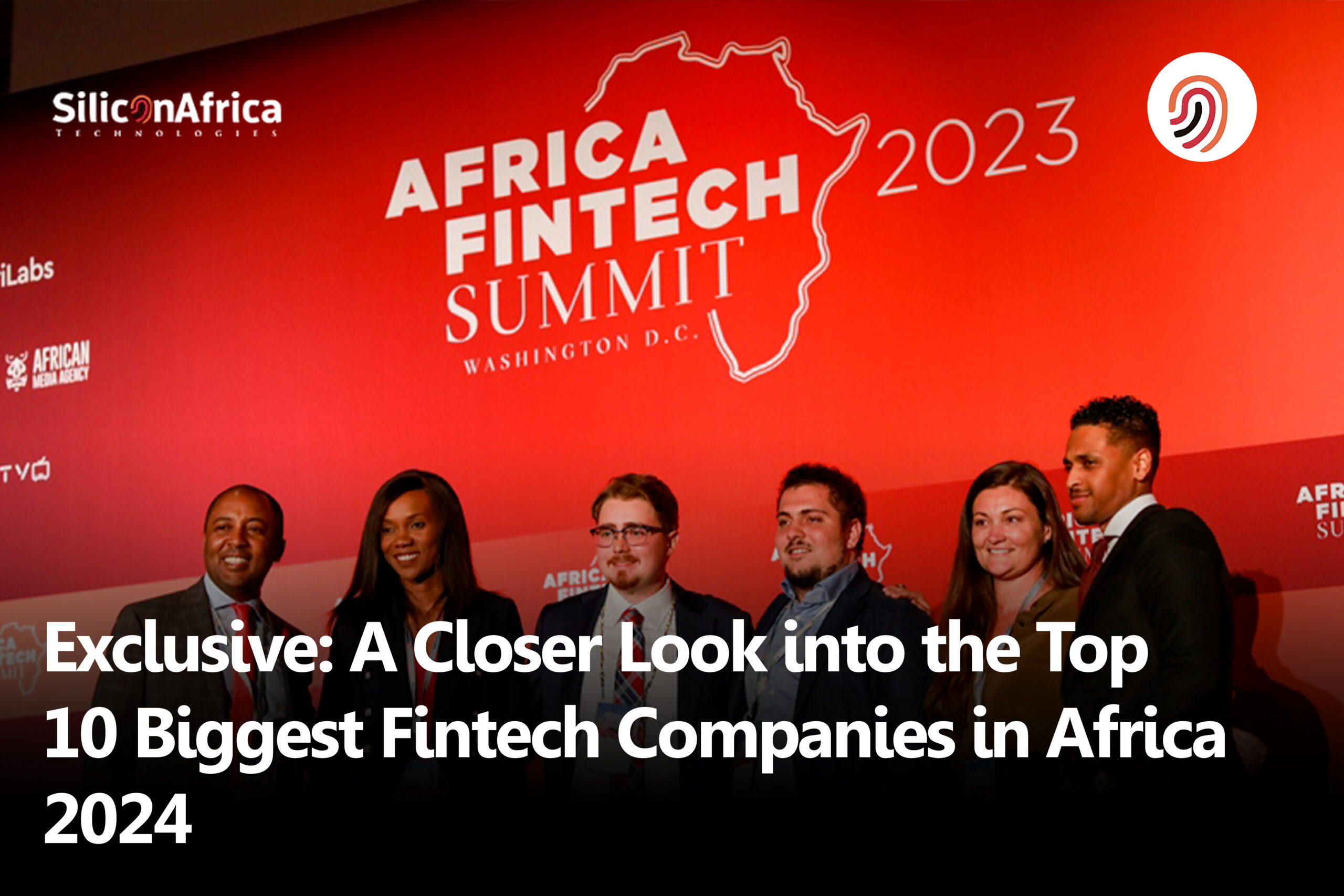
According to recent research from Juniper Research, the leading experts in the payment market, the total value of mobile money transactions in emerging markets will reach $2 trillion by 2027, a whopping increase of over $500 billion from 2023. Undeniably, this projection aimed at powering economies and transforming lives is significantly fueled by some of Africa’s biggest fintech companies.
When we say “biggest,” we’re talking not just about staggering valuations but also user bases reaching into the millions, the impact on financial inclusion, and groundbreaking innovations. These platforms are revolutionizing everything from remittances to lending, all on African soil. But who are these fintech giants reshaping the financial sector?
Fortunately, in this article, we will be pulling back the curtain on the exclusive club of Africa’s 10 biggest fintech players, their impact, banking apps, and the potential payment trends to watch for.
Here are the biggest fintech companies in Africa:
Emerging in 2018 under the guidance of Opera Norway AS, OPay has evolved into a leading Nigerian fintech platform with a powerful mission: financial empowerment for all, regardless of location or income level.
Their ambition goes beyond becoming one of the most adopted banking apps in Africa. This company now strives to be a one-stop platform for everyday financial needs, from mobile payments and airtime top-ups to savings, lending, bill payments, and even wealth management.
OPay’s impact is undeniable. Over 35 million registered users testify to their success, positioning them as one of Africa’s largest mobile money platforms. This impressive reach owes much to their strategic partnerships with established players like the Bank of Industry and Stanbic IBTC.
These partnerships helped open doors for the unbanked and underbanked to formally enter and enjoy the ease of digital banking. Furthermore, their innovative OWealth platform empowers users with daily returns on their savings, while OSpend, a clever integration, promotes financial discipline through a spend-and-save approach.
What truly sets OPay apart is its “Beyond Banking” philosophy. Unlike traditional institutions, they offer a comprehensive ecosystem, catering to the full spectrum of financial needs within a single user-friendly “banking app.” This intuitive interface caters to a diverse audience, ensuring no one is left behind in the digital finance revolution.
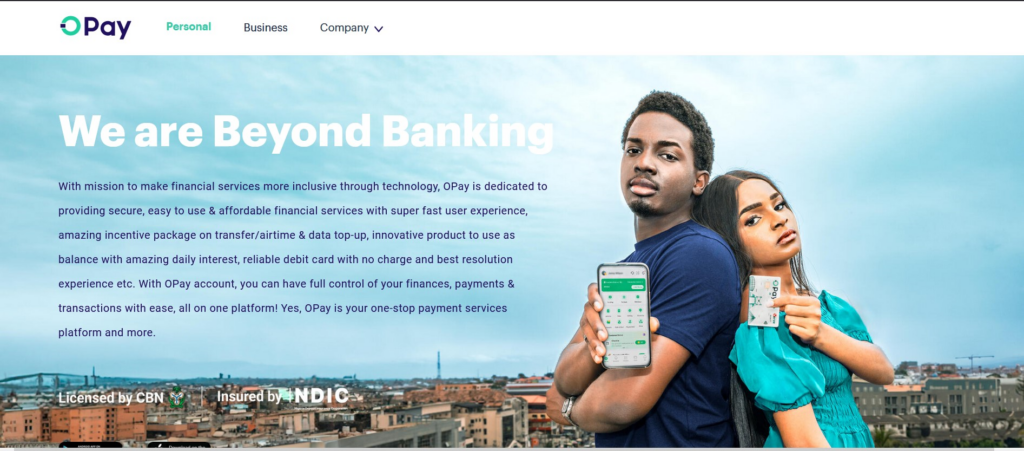
Launched in the Nigerian heartland in 2016, Flutterwave has swiftly transcended its borders to become a true pan-African payments behemoth. They are fueled by their mission to connect businesses and individuals across the continent and beyond in a seamless web of online and offline transactions.
Flutterwave allows you to order an Uber ride in Cairo or subscribe to Netflix in Johannesburg, all facilitated by its innovative solutions. Their reach extends beyond consumer convenience, empowering businesses of all sizes with secure and efficient payment gateways.
Whether it’s a local corner shop accepting mobile payments or a regional e-commerce giant processing online transactions, Flutterwave ensures smooth financial flow.
Its ambition is etched in its recent $250 million funding round, showing its meteoric rise and audacious vision. They dream of a future where African businesses connect with global giants like Microsoft and Visa, further propelling the continent onto the world stage.
Flutterwave’s unique value proposition lies not just in its technological prowess, but in its ability to bridge the gap between the formal and informal financial sectors.
Their innovative solutions cater to both banked and unbanked populations, integrating mobile money platforms with traditional banking apps and systems. This inclusivity is key to their success, empowering every player in the African financial ecosystem.
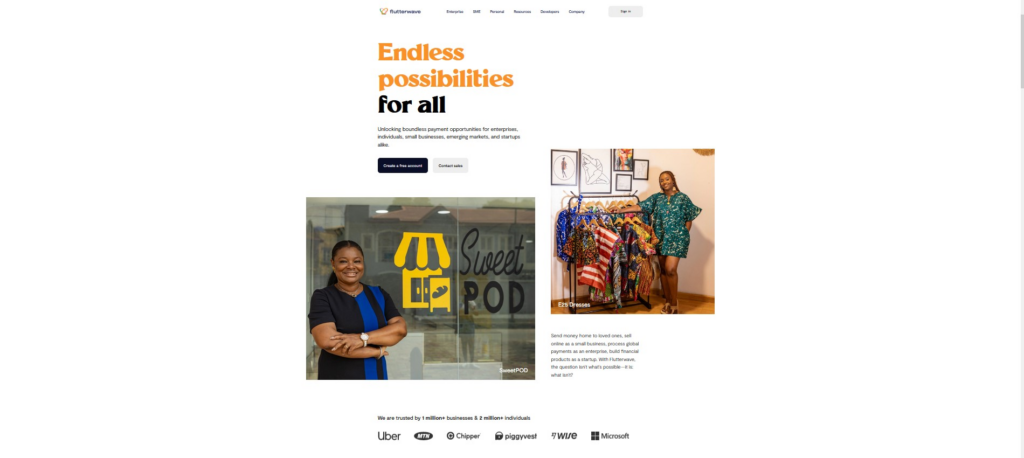
Interswitch, established in 2002, has become the backbone of Nigeria’s payment infrastructure, facilitating everything from ATM withdrawals to online purchases to mobile money transfers.
It coordinates the flow of digital transactions between banks, mobile money operators, and businesses, ensuring every swipe, tap, and transfer is seamless. Over 190,000 businesses and 50 million active cards on their Verve network testify to their reach and impact.
Interswitch isn’t about flashy banking apps or user-facing services; its mission is invisible infrastructure, the bedrock upon which countless financial interactions are built.
Their dedication to security is another virtue of this Fintech Company. Fraud prevention and data protection are duly incorporated, ensuring every transaction is safe and sound. Fortunately, they’re constantly innovating to keep up with trends. Their recent foray into blockchain technology, for example, promises to enhance transparency and efficiency in the financial sector.
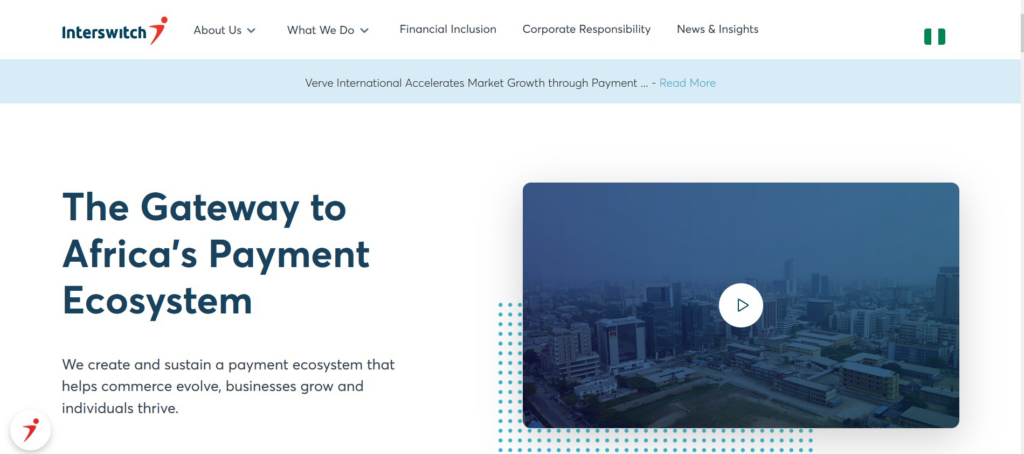
Chipper Cash aims to create a borderless Africa where sending and receiving money across borders is as easy as sharing a cup of coffee. Plus, their recent expansion into the US and UK markets hints at their audacious goals to connect the entire continent and beyond.
With its user-friendly banking app, transparent fee structure, and commitment to empowerment, Chipper Cash, launched in 2016, is on a mission to break down financial walls and build bridges of connection between individuals and businesses, not just within countries, but across the entire continent.
So, now you can send funds to your cousin in Ghana as easily as topping up your airtime or paying for goods in Kenya with a tap on your phone. Over 8 million registered users and partnerships with giants like Visa and Mastercard are testaments to their impact and reach.
But Chipper Cash isn’t just about convenience, it’s also about financial literacy. Their focus on education, through partnerships with NGOs and interactive features within the app, equips users with the knowledge to make informed financial decisions. This commitment to inclusion ensures everyone benefits from the power of borderless finance.
What truly sets Chipper Cash apart is their audacity. They’re not afraid to push boundaries, venturing beyond simple transfers into new domains like USSD technology. This recent move brings financial tools to users without smartphones, expanding their reach and impact even further.
You can also read: Italian Firm De Lorenzo Donates E-learning Solutions to Nigeria
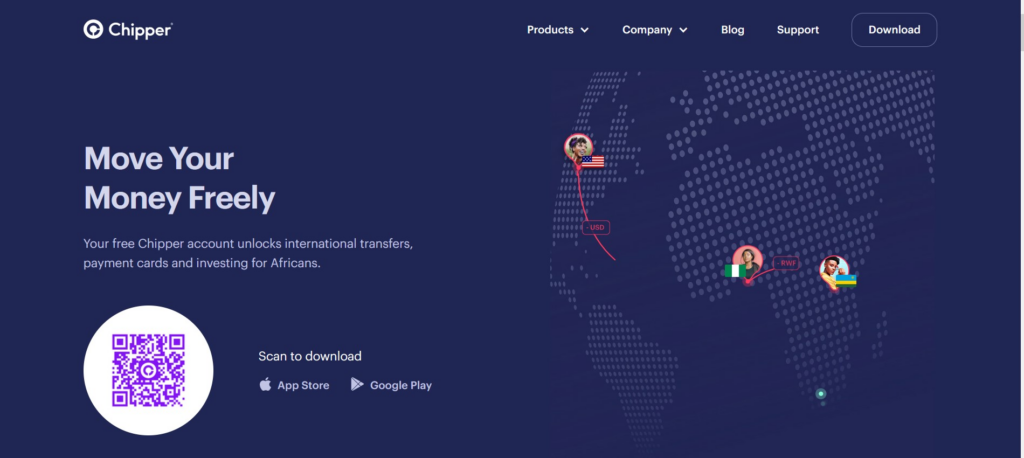
While OPay thrives in bustling metropolises, Wave, launched in Senegal in 2014, paints a different picture – one where cash deposits and withdrawals happen not in sleek buildings, but in the heart of rural villages, under the shade of mango trees.
Their mission? To bridge the digital divide and bring financial inclusion to the remotest corners of Africa, empowering individuals and communities often left behind by traditional banking systems.
They want to ensure the possibility of accessing your money just as easily in the Senegalese countryside as in Dakar. This is the reality Wave champions through its network of agents, local shopkeepers transformed into trusted financial hubs. Over 8 million users and partnerships with NGOs like CARE International paint a vivid picture of their impact on rural communities.
But Wave’s innovation goes beyond physical reach. Their user-friendly banking app, designed for low-bandwidth environments, ensures even those with basic phones can explore the digital world. This commitment to user experience ensures no one is excluded from the financial revolution, regardless of location or tech-savviness.
What truly sets Wave apart is its philosophy of “finance for all.” They’re not just about fancy features; they’re about building trust and understanding of financial concepts. Their partnerships with NGOs go beyond mere access, providing financial literacy training and promoting responsible economic habits.
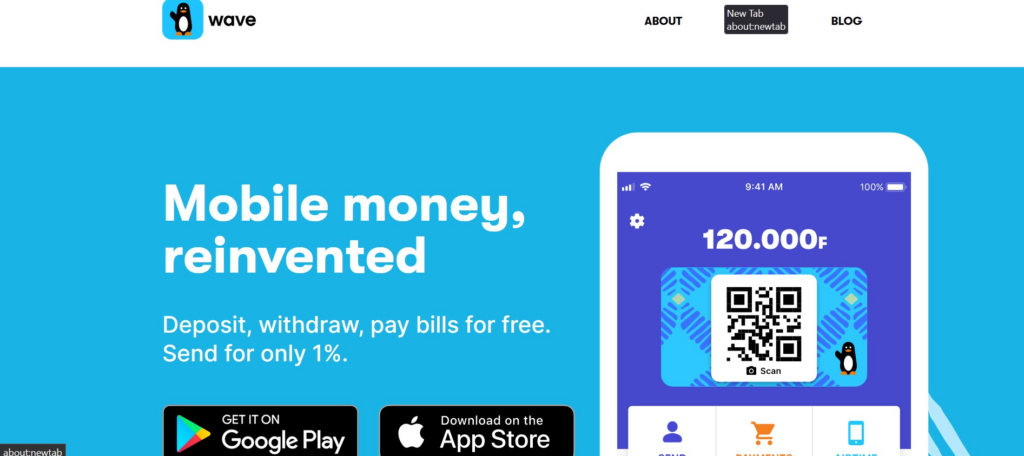
Paystack was launched in 2013 with a mission to equip businesses of all sizes with the tools and security they need to flourish online, building a seamless bridge between customers and online purchases.
The platform will enable you to launch your online store with ease, accept payments from Visa to MTN Mobile Money without breaking a sweat, and rest assured that every transaction is safe and secure with its sleek payment gateway and advanced fraud detection algorithms.
Over 60,000 businesses and partnerships with global giants like Shopify and Booking.com speak volumes about their impact on the Nigerian online space.
Additionally, Paystack is constantly innovating, introducing features like subscriptions, invoices, and analytics, all designed to empower businesses to thrive in the digital age. This dedication to constant improvement puts them at the forefront of e-commerce solutions in Africa.
But what truly sets Paystack apart is its focus on customer-centricity. Their user-friendly interface and intuitive design cater to businesses of all levels of technical expertise, ensuring no one is left behind in the online shopping revolution. This inclusivity is key to their success, helping Nigerian businesses of all sizes compete in the global marketplace.
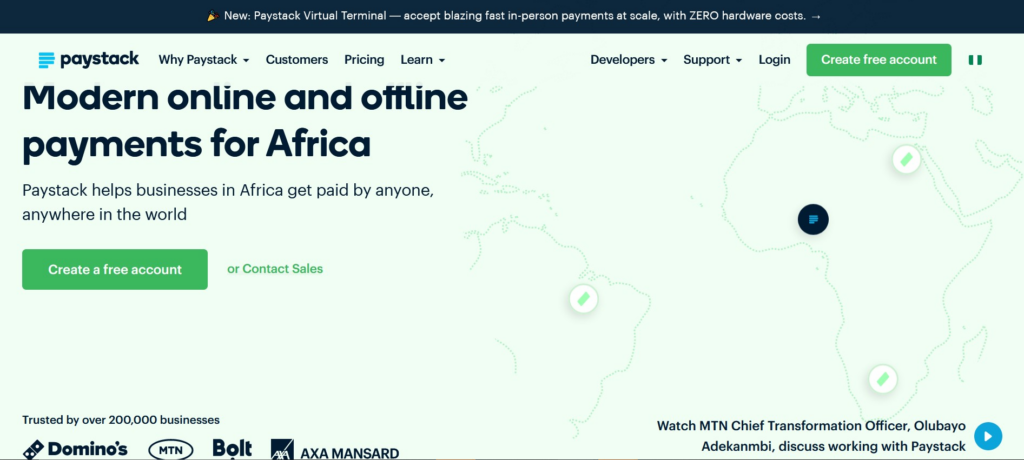
Saving can be fun? Just ask Piggyvest, the Nigerian banking app gamifying financial planning and targeting millennials. Their innovative features and partnerships with banks add a playful twist to responsible saving, making financial freedom attainable and accessible for everyone.
The app allows you to set financial goals, like buying a dream car, taking that longed-for vacation, and watching these goals inch closer, not with bland spreadsheets and calculators, but with cute piggie avatars and engaging challenges.
This is the reality Piggyvest makes possible through its user-friendly app and innovative features. Over 4 million registered users and partnerships with established banks like Stanbic IBTC testify to their impact on changing the face of saving in Nigeria.
Beyond gamification, Piggyvest understands financial literacy is key to empowering saving. Their educational resources and partnerships with financial experts equip users with the knowledge to make informed financial decisions, fostering a future of healthy financial habits. This holistic approach sets them apart from mere digital piggy banks.
Piggyvest employs the “Every Naira Counts” philosophy. They cater to all income levels, offering flexible saving options and micro-saving features, ensuring everyone can take part in the journey towards financial freedom.
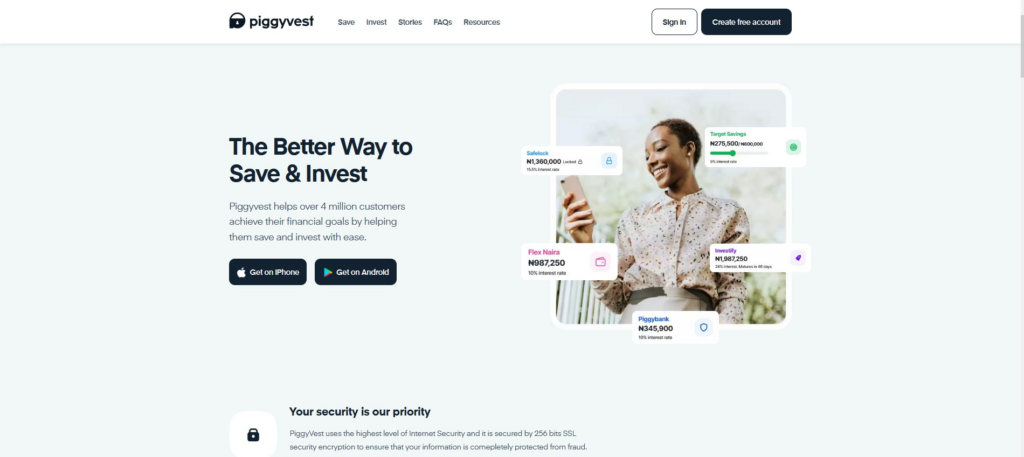
Tala was established in 2014 in the US with a strong East African presence. It empowers women with mobile loans and financial education, using data-driven algorithms to make credit scoring more inclusive. Their mission to break down financial barriers, build financial confidence, and unlock opportunities for underbanked populations is truly inspiring.
This means that a Kenyan market vendor even with no credit history or collateral can access a small loan to expand her inventory Plus, she would be empowered by a banking app that understands her business.
This is the reality Tala makes possible with its unique credit scoring algorithms, utilizing alternative data like phone usage and mobile money transactions. Over 6 million registered users and partnerships with NGOs like CARE International are testaments to their impact on previously excluded communities.
Additionally, their educational resources and partnerships with local organizations equip users with the knowledge to manage their finances responsibly, promoting a sense of ownership and control. This holistic approach sets them apart from traditional lenders.
Still, Tala’s unique selling proposition is its “Women First” philosophy. They recognize the unique challenges women face in accessing financial services and prioritize their needs, making them a beacon of empowerment in traditionally male-dominated financial spaces.
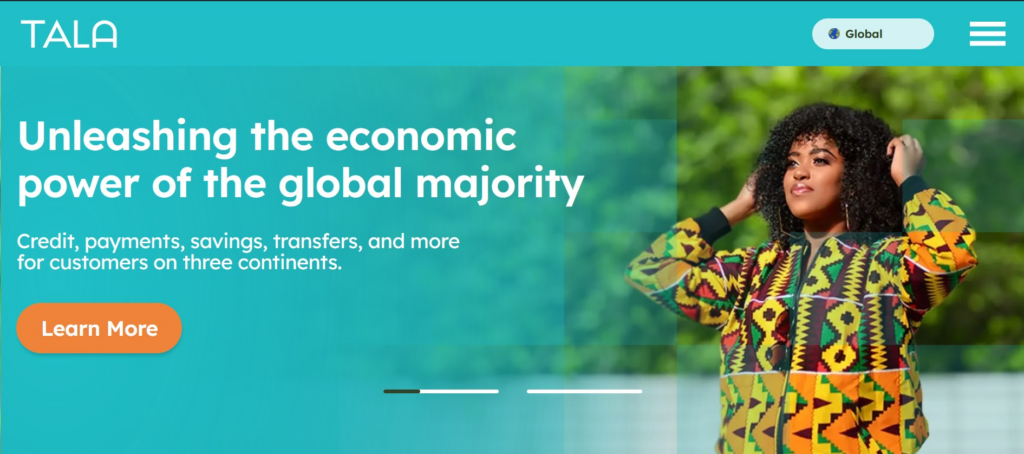
Jumo is fueled by its mission to embrace a “Banking-as-a-Service” philosophy. This allows them to provide the technology and infrastructure that powers financial products and services across the continent.
They provide a bustling marketplace where banks, mobile money operators, and even e-commerce platforms can plug into Jumo’s platform, instantly gaining access to tools for credit assessments, loan disbursements, and savings account management.
Established in 2015 and currently with over $29 billion in loans disbursed through their platform and partnerships with established players like MTN and Mansa Bank illustrates their reach and impact.
They also understand the unique challenges of African markets, from limited internet access to complex regulatory needs. That is why their solutions are tailor-made, often utilizing low-bandwidth USSD technology and alternative data analysis to reach even the most remote communities. This laser focus on accessibility sets them apart from generic fintech providers.
Plus, they’re not building their empire; they’re empowering existing players to excel. This collaborative approach fosters a thriving fintech ecosystem, ensuring financial services reach every corner of the continent. This inclusivity is key to their success, creating a win-win for both Jumo and its partners.
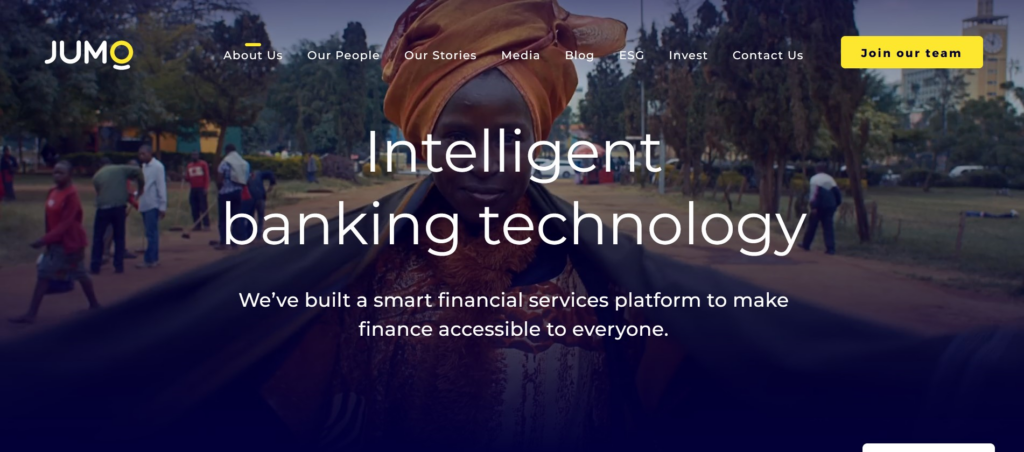
Remita, established in 2006, boasts a robust infrastructure that ensures seamless transactions between individuals, businesses, and government agencies.
So far, their impact is undeniable. Over 500,000 businesses and government agencies rely on Remita, processing over ₦20 trillion annually. Partnerships with giants like MTN and Stanbic IBTC solidify their reach and influence. But Remita isn’t just about numbers; it’s about empowerment.
Its “Invisible Infrastructure” philosophy means that they’re not building their brand or competing with individuals. They’re the silent partner, enabling others to excel. This “behind-the-scenes” approach fosters a thriving financial ecosystem, ensuring efficient payments from government payments to airline reservations.
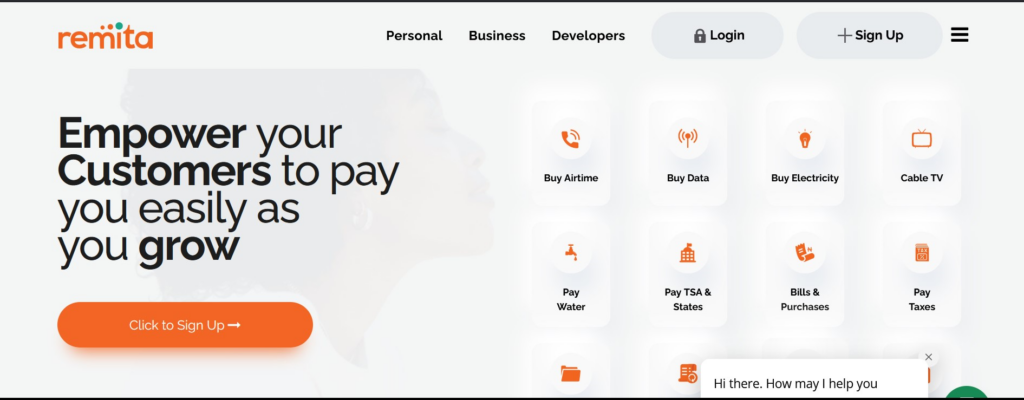
Fintech, a mashup of “finance” and “technology,” leverages various technologies to disrupt and improve the delivery of financial services. Here are the underlying technologies that make these FinTech companies work:
Unlike publicly traded companies with readily available share prices, valuing private players involves a bit of financial detective work. Here are the main tools in the game:
CCA seeks out similar publicly traded companies in the same industry, ideally at similar stages of growth. By comparing their financial metrics like revenue, profitability, and market share, we can estimate a valuation range for the private company. It’s like taking a ruler and measuring your seedling against mature trees to predict its potential height.
This method predicts the future cash flows of the company and then discounts them back to the present using a chosen rate of return. It’s like peering into a crystal ball, envisioning the company’s future earnings and translating them into current value.
This method takes inspiration from recent deals in the same or related industries. If a similar company was recently acquired or went public, its valuation offers a benchmark for our private player. It’s like looking at recent real estate sales in the neighborhood to gauge the value of your own house.
For early-stage startups, funding rounds by VCs offer valuable clues. The amount invested and the valuation assigned by these seasoned investors provide additional data points for the puzzle. It’s like listening to expert art appraisers assess the potential of a young artist’s work.
Now, why does this valuation game matter for ranking fintech companies? Consider it a sophisticated popularity contest, where higher valuations often translate to higher perceived potential and prestige. A top valuation can attract bigger investments, talented executives, and even acquisitions, propelling the company further on the leaderboard.
However, valuation is not a crystal ball. It’s an estimate, a snapshot in time, and future success isn’t guaranteed. Companies with high valuations can stumble, while lower-valued players can skyrocket.
Here are some African Payment Trends for 2025:
Mobile money thrives in areas with limited access to traditional banking, empowering individuals and fueling financial inclusion. It is expected to strengthen in 2025 with deeper integration into formal financial services like loans and savings accounts. Government disbursements and insurance could also find their way onto the mobile money throne, bringing increased convenience and financial security to millions.
But the story doesn’t end there. Mobile money giants are looking out for partnerships with banks and fintech players to blur the lines between formal and informal finance and create a truly comprehensive financial ecosystem for the underbanked masses.
Remember the futuristic movies where you pay with a wave of your hand? Well, that future is arriving in Africa – biometrics like fingerprints and facial recognition are stepping out of sci-fi and into your wallet. You’d be skipping PINs and cash, simply paying with a smile or a touch at checkout.
Convenience and security are the key drivers, with biometrics offering an extra layer of protection against fraud. However, scaling infrastructure and ensuring security across diverse regions are challenges to overcome.
With social commerce, you would be able to scroll through your Instagram feed, spot a gorgeous dress, and buy it with a single tap – no website visits, no endless forms. Platforms like Instagram and WhatsApp are merging shopping experiences with their social features, enabling brands to showcase products and influencers to drive sales within the very apps we spend most of our time on.
Expect seamless in-app payments to become the norm, with secure integrations making checkout as effortless as liking a post. Influencer marketing will also be pivotal, with trusted voices driving consumer trust and boosting sales.
Picture the possibility of sending money home from abroad without hefty remittance fees, or securely storing value beyond the reach of inflation – that’s the potential crypto payments hold. Expect pilot programs focusing on remittance and cross-border transactions, where the need for efficient and accessible solutions is critical.
However, regulatory frameworks need careful crafting to prevent fraud and protect consumers. Partnerships with established financial institutions will be key to building trust and ensuring responsible adoption.
Also, check our article on the New Crypto Smartphone to be Released by Solana Mobile
Expect QR codes and mobile wallets to gain widespread adoption, offering convenience and security to both consumers and merchants. So, look for integration of loyalty programs and personalized offers across online and offline channels, creating a truly omnichannel payment platform.
Even though building robust internet infrastructure and educating merchants, particularly in rural areas, are crucial challenges to overcome, the offline-to-online integration trend promises a more connected, convenient, and data-driven payment ecosystem for all Africans.
Fintech is playing a transformative role in boosting financial inclusion in Africa, bridging the gap between the unbanked and the formal financial system. Here’s how:
1. Reaching the Unbanked
Mobile money platforms like M-Pesa and Opay have revolutionized access to financial services for millions in Africa who lacked traditional bank accounts. With just a phone, they can send and receive money, pay bills, and even save, empowering individuals and fueling economic activity.
2. Lowering Barriers to Entry
Traditional banks often have high fees and strict documentation requirements, discouraging many from participating. Fintech startups offer innovative solutions with lower costs and flexible requirements, making financial services more accessible to underbanked populations.
3. Tailoring Solutions to Local Needs
Unlike one-size-fits-all approaches, fintech companies can develop products and services specifically catered to the needs of local communities. This includes solutions in local languages, integration with informal cash economies, and addressing unique financial challenges faced by rural or underprivileged populations.
4. Driving Innovation and Efficiency
Fintech leverages technology to automate processes, reduce costs, and provide faster, more convenient financial services. This includes innovations like AI-powered credit scoring, digital onboarding, and frictionless micro-loans, making financial products more accessible and efficient than ever before.
5. Promoting Financial Literacy
Many fintech companies recognize the importance of financial education alongside accessibility. They offer educational resources, partnerships with NGOs, and gamified interfaces to equip users with the knowledge and skills to manage their finances responsibly.
Fintech is a blend of finance and technology, making financial services accessible, efficient, and inclusive through mobile money, robo-advisors, digital wallets, and more.
Biometrics, social commerce, cautious crypto exploration, and offline-to-online integration are painting a diverse and innovative sector.
Fintech creates financial inclusion as it reaches the unbanked, lowers barriers, tailors solutions, boosts efficiency, and promotes financial literacy, empowering millions across Africa.
Challenges like evolving regulations, the digital divide, and cybersecurity concerns demand constant adaptation and responsible growth.
Benefits like easier access, lower costs, tailored solutions, security, and financial inclusion empower individuals to take control of their financial lives.
Africa’s financial industry is exploding with innovation, driven by a vibrant fintech sector. This tech-powered revolution is aimed at providing convenience, bridging the financial gap, empowering millions, and fueling economic growth.
And while there are challenges, the potential is undeniable – investors find fertile ground and individuals reap the benefits of easier access, lower costs, and tailored solutions.
So, don’t be a bystander – explore the possibilities, invest in the future, and be part of the dynamic ecosystem rewriting Africa’s financial story, one tap, swipe, and innovation at a time.